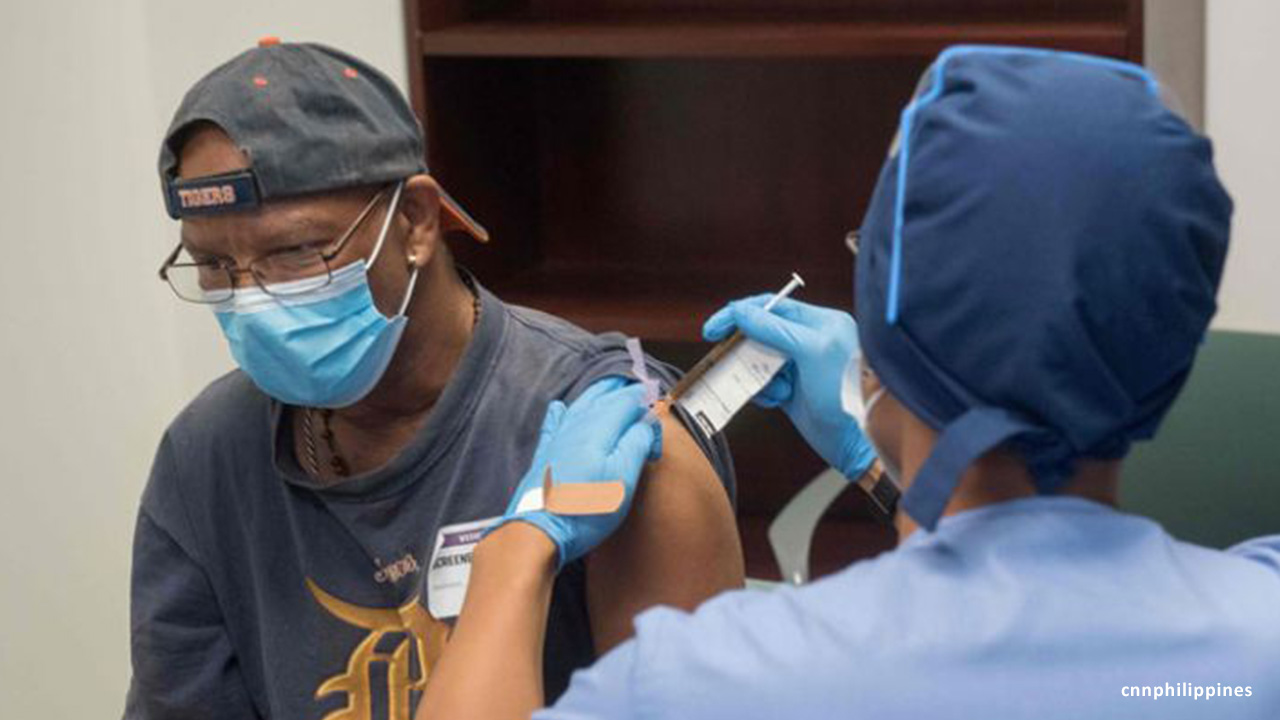An Alaska healthcare worker who suffered an allergic reaction to Pfizer's Covid-19 vaccine on Tuesday felt flushed within the first 10 minutes of receiving the vaccine, and later reported symptoms including shortness of breath and elevated heart rate, doctors said Wednesday.
The case is the first allergic reaction to the vaccine to be reported in the US, although health officials said they are expecting the occasional allergic reaction -- and are prepared to treat anyone suffering from one.
"We expected that a side effect like this could occur after reports of anaphylaxis were made in England after people there received the Pfizer-BioNTech Covid-19 vaccine," said Alaska's Chief Medical Officer Dr Anne Zink. "All sites that are approved to provide vaccinations in Alaska must have medications on hand to deal with an allergic reaction and that was the case in Juneau."
The worker was among staff being vaccinated at Bartlett Regional Hospital in Juneau as part of the rollout of Pfizer's vaccine across the country Tuesday.
According to Dr Lindy Jones, an attending physician at Bartlett Memorial Hospital, the worker was initially held in the vaccine monitoring area right after receiving the shot and took a Benadryl. When she reported shortness of breath, she was taken to the emergency room.
When Jones saw her in the hospital, he said she was experiencing shortness of breath and an elevated heart rate and had developed a rash covering her face and torso.
"I was concerned about an anaphylactic reaction so gave her the standard treatment of a dose of intramuscular epinephrine and she responded immediately," Jones told a news briefing. She was also given antihistamines.
She still had an elevated heart rate and was breathing fast -- a sign of an allergic reaction -- so Jones gave her another dose of epinephrine, as well as steroids "which is another standard bread and butter treatment for adverse anaphylactic reactions," he said.
Jones said the worker, who was not further identified to protect her privacy, had no previous history of allergies to vaccines. She is almost recovered after a night in the intensive care unit.
"She was still enthusiastic that she got the vaccine and the benefits it would give her in the future," Jones said.
"This was an instance where the system worked very well," Dr Jay Butler of the US Centers for Disease Control and Prevention told the news briefing.
"This incident was reported last night to the CDC's Vaccine Adverse Event Reporting System (VAERS) database. The State of Alaska Department of Health and Social Services (DHSS) has been in close communication with the CDC, and the agency is providing guidance and support," the state health department said in a statement.
Dr Paul Offit, a member of the US Food and Drug Administration's Vaccines and Related Biological Products Advisory Committee, said on Wednesday that doctors will have to keep an eye out for allergic reactions to the new vaccine.
"It's the kind of thing that we're obviously going to need to look at," Offit told CNN's Brianna Keilar. He noted there were two reported cases of allergic reaction in Britain, which rolled out the vaccine earlier this month.
"There were obviously several people in the United Kingdom who had had a severe allergic reaction to this vaccine and had a history of a severe allergic reaction," said Offit, who is director of the Vaccine Education Center and professor of paediatrics at Children's Hospital of Philadelphia.
"Currently, the CDC recommendation is that if you ever had a severe allergic reaction to an injectable medical product, you shouldn't get this vaccine," Offit added.
The Asthma and Allergy Foundation of America also noted on Wednesday that the FDA and CDC "are all keeping an eye on" the reported adverse events.
"Recent media reports of reactions to the new Pfizer/BioNTech COVID-19 vaccine, first out of the U.K and now one report in the United States are stirring safety concerns for people with a history of serious allergies. It's important to remember that we still don't have the full details regarding the specifics of any of these reported reactions," Dr Mitchell Grayson, chair of the foundation's medical scientific council said in a written statement on Wednesday.
"We're in the early stages of COVID-19 vaccine rollout. It is common to see adverse vaccine reactions once wider distribution to the general public begins, even if none of these reactions was observed in clinical trials," Grayson said. "Additional vaccines are in the pipeline so there will likely be more options if it is determined that one vaccine works better in certain populations than others. It's important to let the science do its work, not the headlines. Anyone with concerns about allergy risk should consult with their doctor."
Story Source: https://edition.cnn.com/2020/12/16/health/alaska-allergic-reaction-coronavirus-pfizer-vaccine/index.html

 It is common to see adverse vaccine reactions once wider distribution to the general public begins, even if none of these reactions was observed in clinical trials
It is common to see adverse vaccine reactions once wider distribution to the general public begins, even if none of these reactions was observed in clinical trials










.jpeg)

.jpeg)
.jpeg)
.jpeg)

.jpeg)
.jpeg)
.jpeg)
_(1).jpeg)

_(1)_(1)_(1).jpeg)
.jpeg)
.jpeg)
.jpeg)






